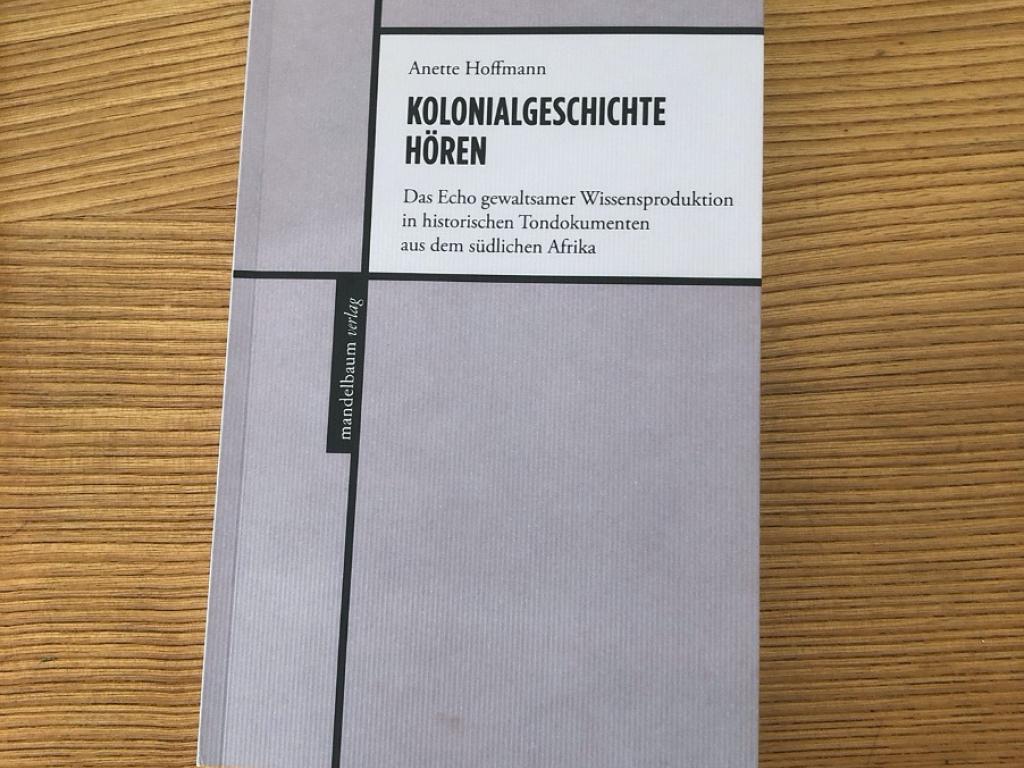APC research fellow Anette Hoffmann’s monograph Kolonialgeschichte hören. Das Echo gewaltsamer Wissensproduktion in historischen Tondokumenten aus dem südlichen Afrika (Hearing colonial history. The echo of violent knowledge production in historical sound recordings from southern Africa, Mandelbaum Verlag, 2020) came out in September. The book is one of the results of her engagement with sound archives. It delivers a systematic study of the postion and potential of sound recordings as sources for an understanding of colonial history that includes the comments of those who were subjected to research by anthropologists and linguists. For this purpose, Job Morris, activist for the rights of San from D’kar, has re-translated recordings of Naro speakers, which were produced by the Austrian anthropologist Rudolf Pöch in 1908. The new translations allow to reinterpret recording situations in the Kalahari during the colonial war in Namibia (1904-8) and at the time of a severe drought in the region. The spoken texts also form the basis for Hoffmann’s study of violent practices of acquiring the belongings of Naro speakers that were to become ethnographic objects, in a museum in Vienna. Some of the recordings speak of forced labor under colonial rule and of the speakers’ fear of the anthropologist who was armed and supported by the German military. The book further reconnects the dispersed collection of sound recordings, photographs, objects, human remains, and film clips that are held by different institutions in Vienna.
For research, writing and the publication of the book Hoffmann has received generous funding by the Volkswagen Foundation and was based at the Humboldt University in Berlin. Yet the first step towards this publication was made with the support of a UCT travel grant, which allowed Hoffmann to travel to Cape Town in 2016, present her work at APC and study in UCT’s libraries and collections. Hoffmann is planning to translate the book to make it accessible to readers in southern Africa as soon as possible.
